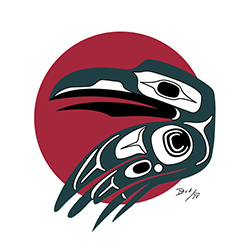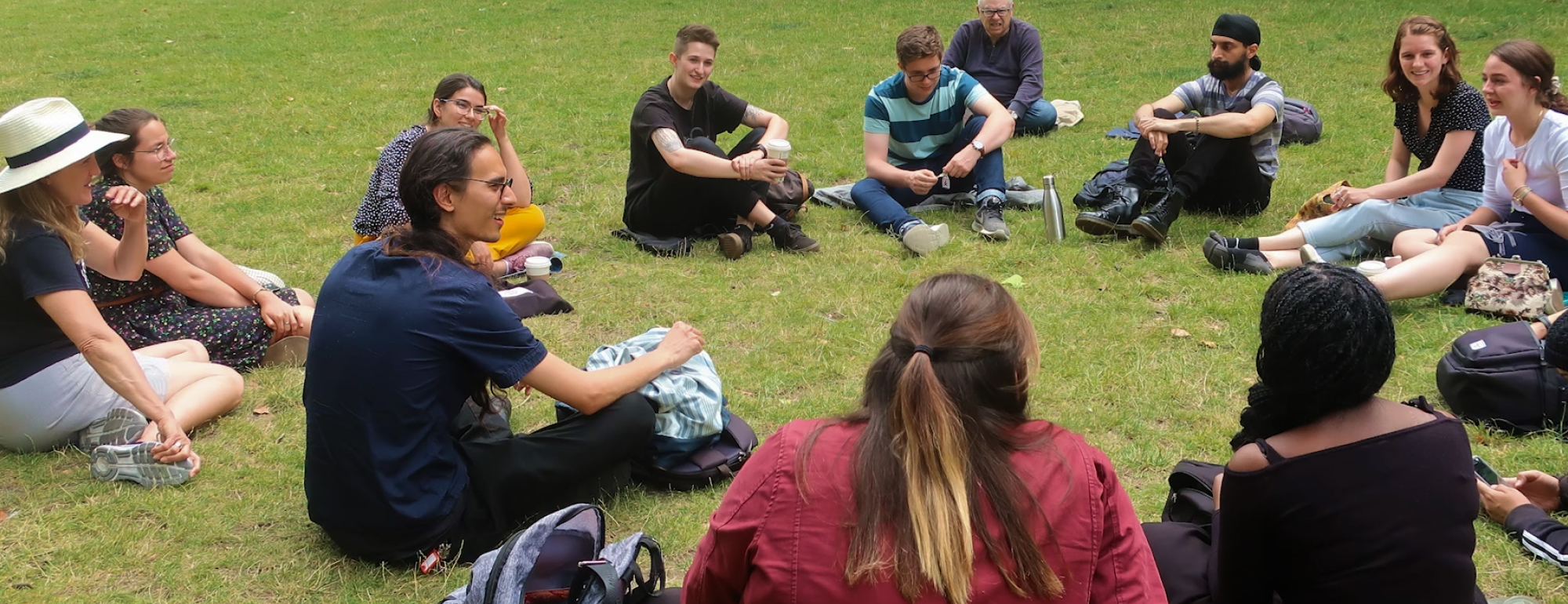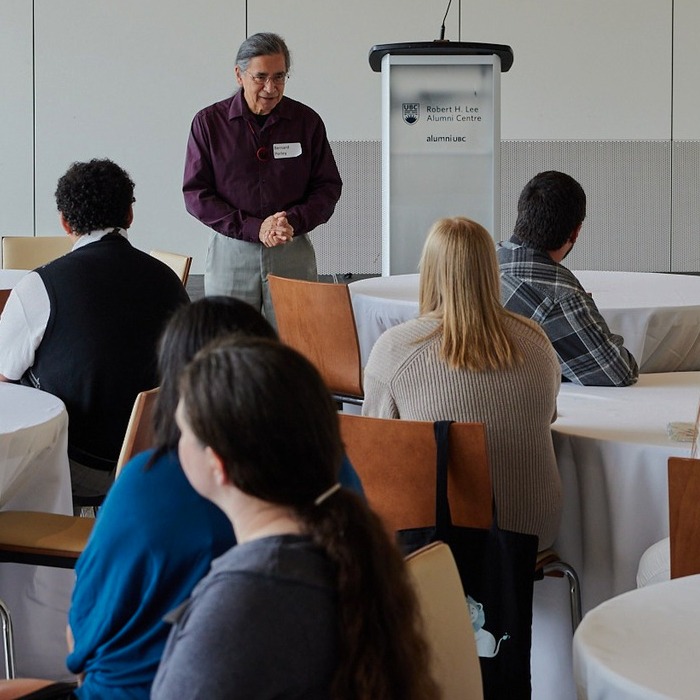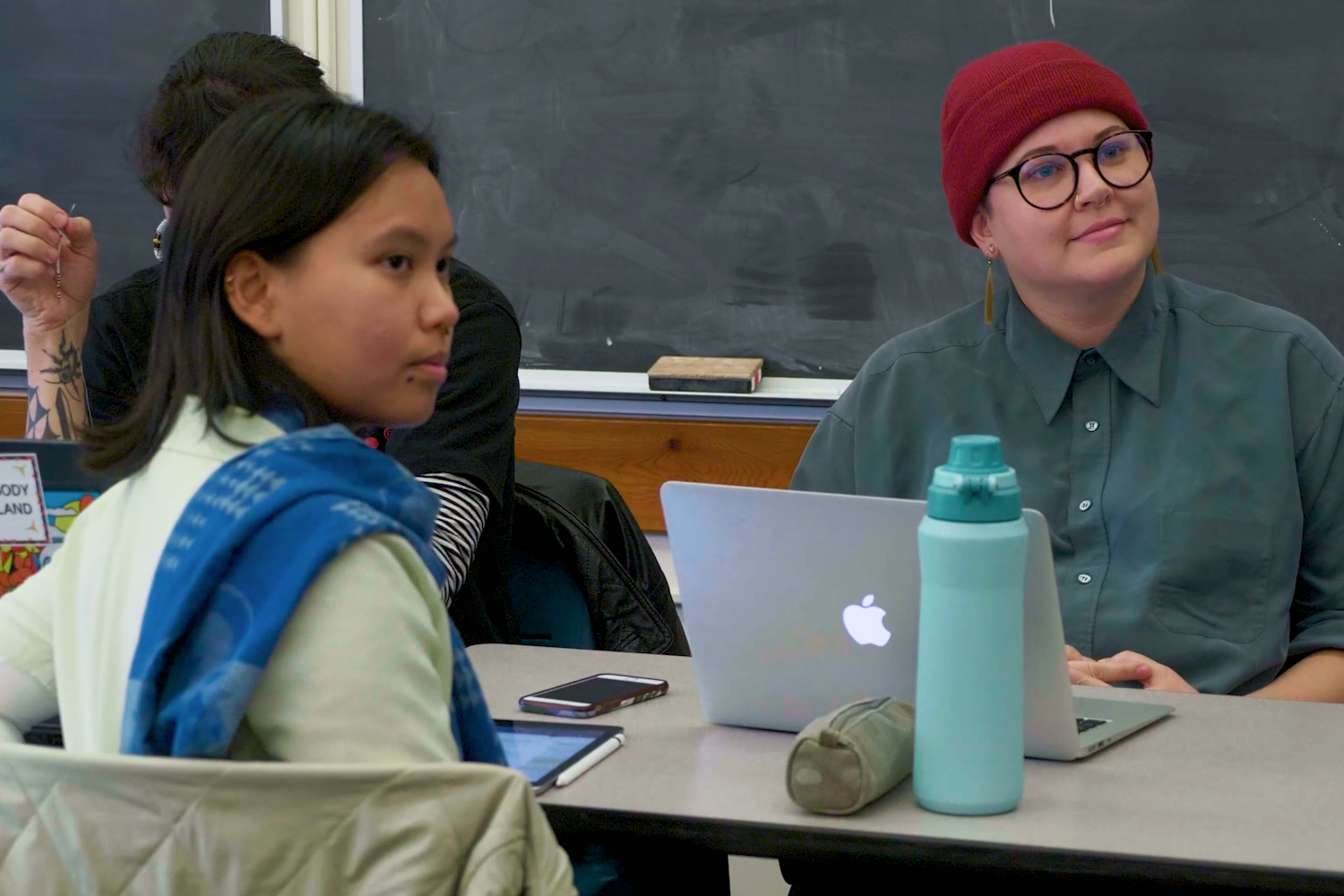A Bachelor of Arts (BA) in First Nations and Indigenous Studies (FNIS) prepares you to collaborate with Indigenous communities in your career or future studies.


Created by Dempsey Bob, the artwork depicts an image of a raven and the sun, a reference to a story from many BC First Nations traditions.
Our major and minor programs examine Indigenous history, arts and culture, systems of knowledge, and political theory and activism. You’ll take on a critical, interdisciplinary lens to evaluate and develop approaches to contemporary Indigenous issues.
FNIS students walk away with critical perspectives, theoretical frameworks, and practical skills for working with Indigenous communities and organizations.
FNIS was founded in 2001 to help students understand the histories, contemporary realities, and political concerns of Indigenous peoples in Canada and beyond.
As a founding unit of the Institute for Critical Indigenous Studies (CIS), we believe that deep understanding and ethical engagement are central to the wellbeing of resurgent Indigenous communities and can help advance Indigenous-settler relations.
Program outcomes
“Where theory meets practice” is a key principle of FNIS, which combines rigorous critical scholarship with ethical community engagement.
Through coursework and classroom discussions, you'll be uniquely trained in foregrounding Indigenous perspectives in research. At FNIS, we aim to help you develop a nuanced approach to addressing Indigenous issues and working with Indigenous communities through respectful, mutually beneficial collaboration.
The fourth-year practicum will strengthen your research, project coordination, and collaboration skills, building a foundation for your future career or advanced studies.
Our smaller class sizes can help you form close ties with your peers and instructors, while the practicum encourages you to build strong working relationships. At CIS, we all share the same commitment to bettering the experiences and wellbeing of Indigenous peoples.
What can I do with an FNIS degree?
A degree in First Nations and Indigenous Studies (FNIS) opens doors to careers in the public, private, or not-for-profit sectors. Your career options can include, but are not limited to:
- Public policy
- Resource management
- Community development, research, or services
- Arts and culture conservation
- Education and pedagogy
- Academic research
- Fundraising
- Media consulting or production
- Public administration
FNIS alumni have pursued advanced studies in a variety of areas. Your research skills and deep understanding of Indigenous perspectives can be invaluable in both academic and non-academic settings.




